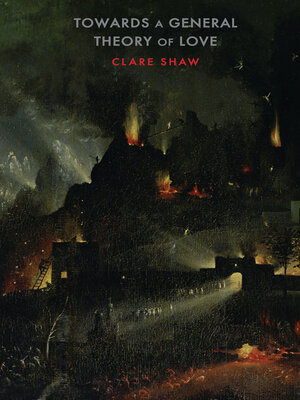
Sign up to save your library
With an OverDrive account, you can save your favorite libraries for at-a-glance information about availability. Find out more about OverDrive accounts.
Find this title in Libby, the library reading app by OverDrive.



Search for a digital library with this title
Title found at these libraries:
| Library Name | Distance |
|---|---|
| Loading... |
Clare Shaw's fourth collection Towards a General Theory of Love shows that poetry can say as much as about who we are – and especially how we feel – as psychology. They also feed each other. Harry Harlow's famous experiments on baby monkeys changed the course of psychology. They proved that we need care, contact and love – and they inflicted profound and lasting suffering on their subjects. Clare Shaw's poems in Towards a General Theory of Love are driven by the same furious need to understand the experience of love and its absence. Harlow's findings, attachment theory, mythology and art are set alongside stories of attraction, grief and desire. The book is inhabited by the character of Monkey, who shows by example how early attachments and trauma may shape us, but how ultimately the individual – like the reader – will come to realise her, his or their own general theory and practice of love.







